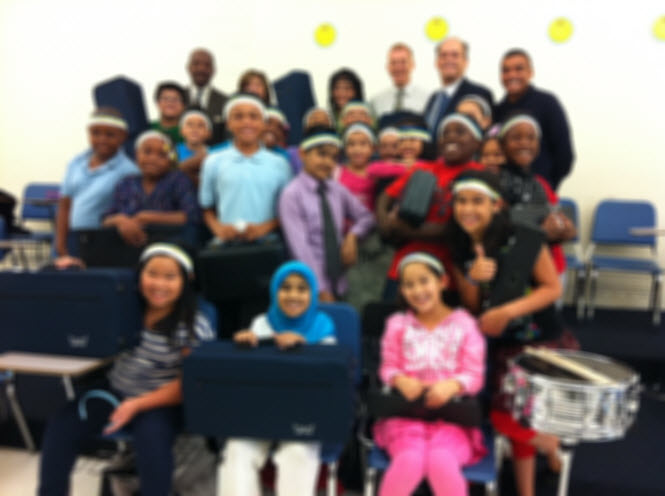 By Hiram Jackson
By Hiram Jackson
GUEST COMMENTARY – This Nov. 13, the 8th and 9th grade students of the Holmes Junior High orchestra will perform the National Anthem for the Sacramento Kings home game with Portland. It will be the largest live audience they have ever had, and for some students, it will be their first time ever attending a professional sports game. They will literally play on an NBA court before graduating from high school.
They have this opportunity because the Measure A school parcel tax has made it possible for junior high students to have options for elective classes. Measure A will expire at the end of this school year, but many more future students will have similar opportunities if Measure E passes on Tuesday. Measure E will continue funding for several other programs, but here I point out reasons to value the junior high music program.
The Holmes orchestra earned the privilege of this performance through focused daily rehearsal and practice. They memorized the National Anthem for better presentation and efficient movement on and off the floor and are very proud to represent Davis, the music program and their school. When they perform the National Anthem, they will appreciate the responsibility of leading the larger community in a ceremony of patriotic observance. These experiences and skill-habits carry into the broader culture of school and community life. Years from now, they will have memories to share of that special evening.
This is only one of several music groups in the Davis schools. Each has a program that inspires and motivates students in similar ways. These are larger, efficiently staffed classes that have the capacity to grow larger with continued funding. It is arguably a scandal to pack 50+ students into an English or math class. Not so for a music class. Why? Because the inherent goal of music performance is to get all of the students to work together as one group.
Skeptics unfamiliar with a school music program quickly say that students can fulfill their musical interests outside of school through private lessons or a private youth orchestra. Immediately that limits music only to those families who have the time and money to invest in such activities outside of school. With the broader accessibility of a funded public school music program, students have the experience of working together with classmates of many different backgrounds. Without a connection to school music, students lose opportunities of diverse interactions, as well as a positive school-based social and academic culture that develops through music performance. In our internet-dominated society, music teaches students to be present and focused on their surroundings and on each other, and to disconnect temporarily from cell phones, texting, social media and internet.
Cutting back such programs indicates that their learning outcomes, described above, are not as important. Because music performance is not assessed through standardized tests, state guidelines tend to dictate that a school district follow a narrower curriculum agenda if funds are limited. But if funds are available, we in Davis can determine that our schools pursue these proven alternative learning outcomes that actually improve outcomes in other traditional classes.
Employers prefer candidate employees with demonstrated capacity to work with others, a commitment to group success, an appreciation of delayed gratification, creative and esthetic sensibilities and the ability to present one’s self in public. These particular skills are better developed together in a successful music program than in traditional classes where achievement is measured in individual standardized test scores. In this way, performing arts play an integral role in the curriculum.
The school music program has reached out to even more students each year. Through donations, fundraising and grants, parents and music teachers have worked to acquire additional school instruments for students who need them. High school music students have been paired with beginning elementary musicians to tutor and mentor them through their first years, especially targeting students who otherwise wouldn’t take private lessons. This has improved overall retention of students in the program, especially at elementary levels, and has the junior high program poised to welcome even more students, if funding remains available.
Success in the 21st century is not only about being proficient in cognitive drills measured in mandated standardized tests. It is also about having the whole portfolio of skills in group interactions, discipline, creativity, and public presence. I am in my 11th year as a parent music booster volunteer and have seen numerous instances in which the school music program provided an organizing point for a student’s secondary school life and for life after graduation. It isn’t about making everyone a professional musician, but rather about developing our students into good citizens through skills learned in music, no matter how modest one’s background.
Please vote to secure continued funding for programs like junior high music. Vote YES on Measure E!
comment timezone test